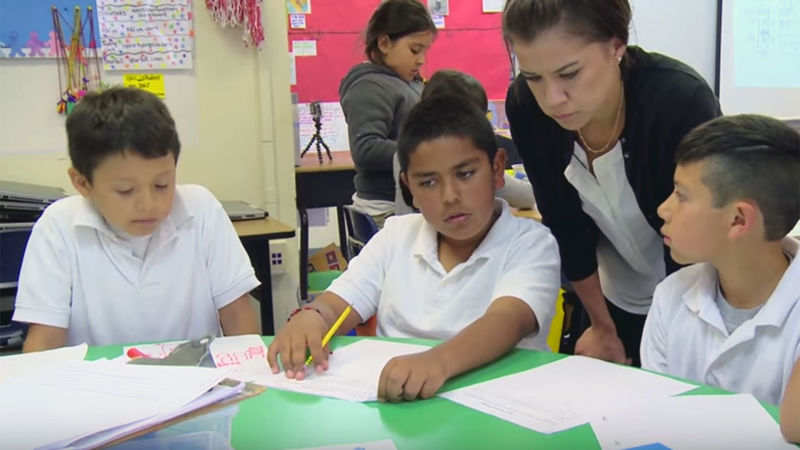Carol Dweck's research on growth mindset has become essential knowledge in education circles. The Stanford psychologist found that children who understand that their brains are malleable and can change when working through challenging problems can do better in school. Now, many school districts are attempting to teach growth mindset to their students. At the core of this practice is the idea of "productive failure" (a concept Dr. Manu Kapur has been studying for over a decade)* and giving students the time and space to work through difficult problems. Another key idea is to praise the process and effort a child puts in, not the final product.
These mindset changes are easy to describe and dictate, but more challenging to implement. To help both teachers and parents, Stanford's PERTS Center has teamed up with the Teaching Channel to produce videos that demonstrate process praise and productive struggle. PERTS has developed a toolkit to support the adults in children's lives who are struggling to change their practice.
In the video below on classroom struggle, second grade teacher Maricela Montoy-Wilson repeatedly asks her students to justify their thinking using reasoning and evidence. She encourages students to critique one another's thinking and ask for specific kinds of help. She highlights that problems can be solved in different ways and normalizes struggle in her classroom so students don't feel bad if they don't understand.
"Everyone is going to feel stuck," Montoy-Wilson said. "Everyone is going to feel challenged by it. So they can get excited and think about the strategies they can implement to tackle the problem."

